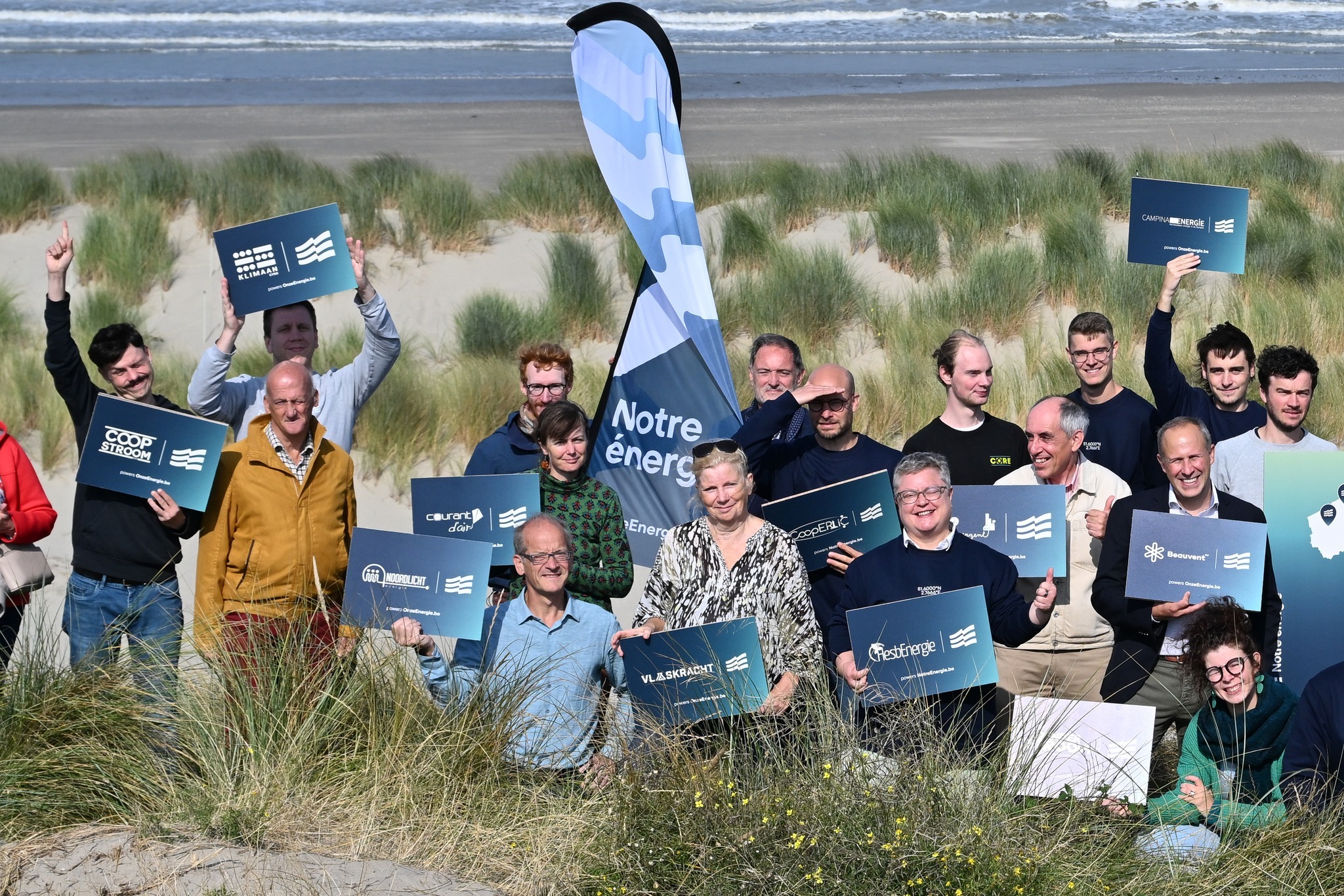News
Cutting the wind from the citizens’ sails: The backlash against community offshore wind in Belgium
Op-ed by Chris Vrettos, senior policy advisor at REScoop.eu.
Imagine a small EU country, where hundreds of thousands of citizens are producing their own clean energy, thus shielding themselves from volatile energy prices. A favourable lending environment by private financial institutions, a broadly supportive legal framework, a bedrock of social trust and cooperative culture. Mix the elements, and results are impressive: Belgian citizens produce over 5% of all renewable energy in the country. Only in the region of Flanders nearly 100,000 citizens have invested in local renewable energy projects, equivalent to 307 GWh - enough to drive up and down the length of Europe with an electric car 46 times. In fact, just the residents of Flanders have mobilised €36 million for the clean transition. Across the country, 125,000 Belgian citizens are already co-owners of wind turbines, in turn mobilising over 150 million euros.
In 2019 a new frontier for citizen energy opened: the Royal Decree on new offshore wind zones included citizen participation as one of the tender criteria. The Belgian community energy movement was about to take the next major leap forward. The regional federations of energy communities in Flanders and Wallonia (REScoop Flanders and REScoop Wallonie respectively) brought together most of the energy cooperatives in the country to found SeaCoop, an umbrella cooperative with the objective of taking 20% ownership of the Belgian offshore wind farms and supply 20% of the produced electricity to citizens.
With catchy motos around public ownership of the wind, and an attractive financing offer, SeaCoop quickly managed to secure stakes from cooperatives representing over 125,000 Belgian citizens, in turn mobilising over €2 million. The story became a benchmark for the community energy movement in the EU at just the right moment: in its revised rules around renewable energy targets, the European Commission called on Member States to include local communities in offshore wind projects as a way to boost social acceptance.
Belgium’s citizens are getting carried by the wind - literally and metaphorically - everflowing upwards towards energy independence.

A wind shift
However, in June 2025, the new Belgian Government, elected a few months before, pulled the rug from under their feet.
On 27 June 2025, the Council of Ministers decided to postpone the first 700-MW Princess Elisabeth Zone 1 tender – the North Sea area where the first wind farms will be installed – because of legal uncertainties and "an unrealistic timescale," the latter principally referring to concerns the grid connection for the Princess Elizabeth Zone will not be ready in time. While the new tender is planned for March 2026, Belgian ministers have openly questioned the need to include citizen participation criteria.
In August, SeaCoop launched a petition calling on the Belgian Government to honour their commitment to the hundreds of thousands of citizens willing to invest in offshore wind. And to back their claims, SeaCoop is already walking the walk: the cooperative secured a stake in an existing offshore wind project, which equates to 50Gwh of annual electricity production. Enough to power over 15,000 families.
The European dimension
REScoop.eu, the European federation of energy communities, stands firmly in support of SeaCoop. At a time when the EU’s pioneer offshore wind industry struggles due to competition from China, and a hostile policy environment in the United States, Member States should do everything possible to accelerate homegrown projects.
As Europe faces an ongoing energy crisis, leading to higher energy poverty and reduced competitiveness, sidelining citizen energy projects is shortsighted. SeaCoop’s model of selling energy through ‘contracts for difference’ assures stable prices for consumers and reliable revenue streams for the thousands of citizen-investors.
The European Commission’s recently unveiled ‘Affordable Energy Action Plan’ explicitly calls on Member States to leverage community energy as a tool for stable and secure energy prices.
At the same time, as Europe scrambles to wean itself off Russian fossil fuels, we are faced with an enormous investment gap. The bloc must invest an additional €400 billion annually in infrastructure – grids, batteries, renovations, renewables – that is essential for energy independence. Citizens can help fill this gap: community-led wind projects could mobilise up to €176 billion by 2030.
Most critically, as the EU advances its ‘Clean Industrial Deal’ to foster clean reindustrialisation, the Belgian government’s abrupt policy shift risks damaging the country’s – and the EU’s – reputation for a stable, supportive regulatory environment for renewable energy projects.
Citizens and energy communities can meaningfully contribute to transforming the EU into a green industrial powerhouse. But Member States need to play their part in creating an enabling environment. The wind is for everyone – and SeaCoop has proven that.